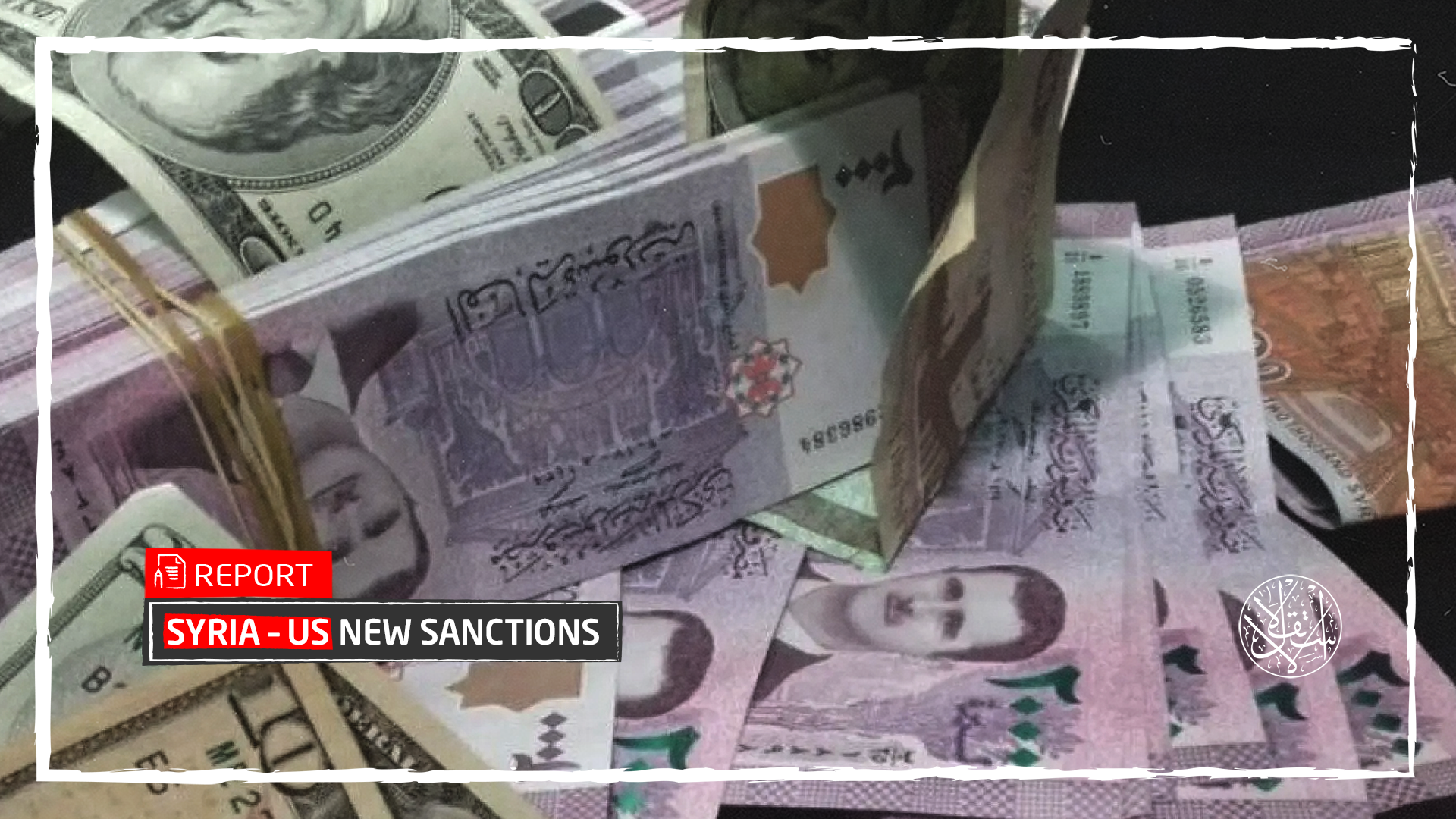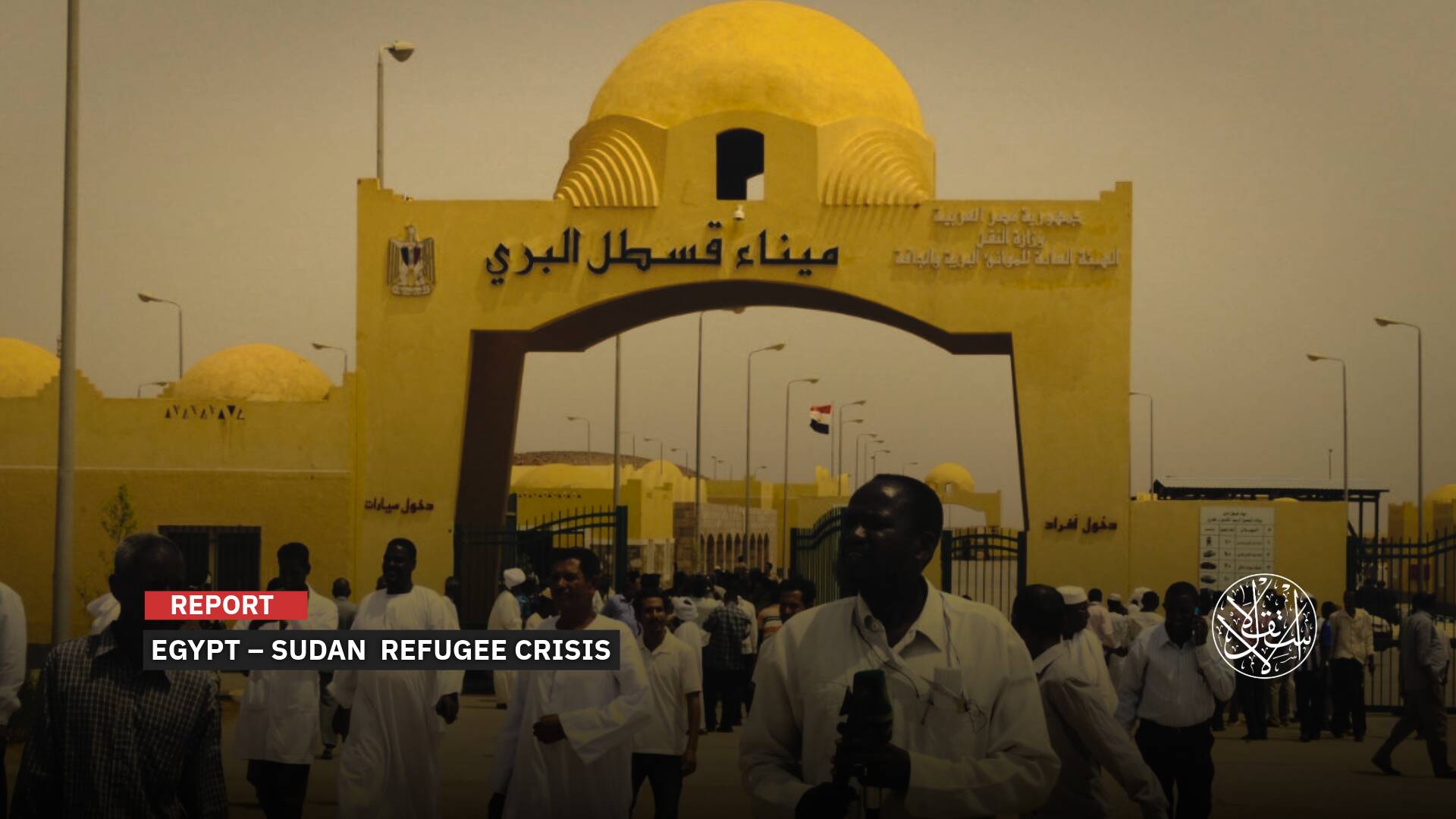What Messages Is the U.S. Conveying by Tightening the Noose on Syrian Regime-Affiliated Exchange Companies?

As the United States reaffirms its commitment to not make any concessions in its sanctions imposed on the Syrian regime, Washington continues to tighten the screws on exchange and remittance companies affiliated with the regime. These companies serve as a primary source of funding through their branches in various countries.
In its ongoing effort to dry up the financial resources of the Assad regime, the U.S. Department of the Treasury’s Office of Foreign Assets Control (OFAC) added Al-Fadel and Al-Adham financial services, exchange, and remittance companies to the sanctions list under the Caesar Act on May 30, 2023.
Violations of Sanctions
The OFAC stated that these two companies violated international sanctions by surreptitiously assisting the Syrian regime and Lebanese Hezbollah in accessing the international financial system.
Brian E. Nelson, the Treasury Department’s Assistant Secretary for Terrorist Financing and Financial Intelligence, emphasized that the United States would continue to press for reforms that improve the conditions for those living under Assad and hold accountable those who enable the ongoing repression of his people.
According to the OFAC decision, Al-Fadel Exchange, based in Damascus, facilitated payments from the Syrian regime to the financial officer of Hezbollah, Muhammad Qasim al-Bazzal, who is listed on the U.S. terrorism list, in exchange for Iranian oil shipments starting from mid-2021.
The company also facilitated transfers of millions of dollars to accounts in the Central Bank of Syria, which is sanctioned by the United States. Additionally, Hezbollah used the company to transfer money from other countries in the region to Syria.
The OFAC noted that the Assad regime and Hezbollah collect hard currencies from outside Syria and use Al-Fadel to transfer those funds to the Central Bank of Syria.
The classification of Al-Fadel Exchange under U.S. sanctions was based on its provision of material, sponsorship, financial support, technological support, goods, or services to support the Central Bank of Syria.
Al-Fadel Exchange is a financial service, currency exchange, and money transfer company licensed by the Central Bank of Syria in 2015 under the Financial Institutions Licensing Law. It has dozens of branches in Syria, Lebanon, and Turkiye.
Al-Adham Exchange, based in Damascus, has facilitated transfers worth millions of dollars since 2021 to accounts in the Central Bank of Syria, directly benefiting the government of the regime.
Since late 2022, the company has regularly transferred funds abroad on behalf of the Central Bank of Syria, according to the U.S. Office of Foreign Asset Control.
Remittances as a Lifeline
Most Syrians in regime-controlled and opposition-held areas rely on multiple sources to balance their income and expenses. The most prominent sources include financial remittances from expatriates outside Syria and engaging in other businesses, in addition to families cutting back on essential aspects of their lives to reduce monthly expenses.
Many Syrians in regime-controlled areas resort to money transfer brokers in the black market to receive their remittances at a better exchange rate than licensed exchange offices.
However, citizens fear resorting to such broker networks to avoid any security risks, as the regime considers dealing with such networks “a violation of the law that criminalizes transactions in currencies other than the Syrian pound.”
On January 18, 2020, the regime’s president issued Decree No. 3, which tightened sanctions on those conducting transactions in currencies other than the Syrian pound as a means of payment.
The decree stipulates that individuals will be punished with “temporary hard labor for a period of no less than seven years.”
However, in April 2021, the Syrian Central Bank allowed exchange companies to deliver remittances to traders and industrialists in dollars, excluding citizens. Economists estimate that the value of remittances from Syrians abroad amounts to $2 billion annually.
In light of the Western sanctions imposed on the regime following its suppression of the revolution in 2011, the regime found financial remittances as an “alternative source” to acquire foreign cash after banks in its areas were denied access to the global financial system amid an unprecedented collapse of the Syrian pound.
However, financial remittances coming from abroad to the areas controlled by the Syrian regime take a long and difficult path, riddled with obstacles and challenges.
Most of these challenges revolve around the deduction of portions of these funds for the benefit of exchange companies, while ultimately these remittances end up in the regime’s treasury.
The remittance companies operating in the Syrian regime-controlled areas have become limited to several companies, namely Al-Fadel, Al-Mutahida, and Al-Haram, after the regime closed down most of them and tightened its monetary policies under the pretext of combating inflation.
However, the real reason behind this is a dispute between Rami Makhlouf, the nephew of the regime’s president and the former head of his financial system, and Asma, the wife of Bashar al-Assad, who manages the “war economy” from inside the Republican Palace in Damascus.
On December 18, 2000, Asma al-Assad married Bashar, who assumed power from his father on July 17 of the same year. She was born in London in 1975 and holds British citizenship.
She comes from a Sunni family in the city of Homs, while her father, Fawaz, lived in the United Kingdom and held a medical degree.
Asma obtained a bachelor’s degree in computer science from King’s College, affiliated with the University of London in 1996, and received banking training in New York.
A Source of Foreign Currencies
As for the Al-Haram company, established in 2007 and said to enjoy coverage from Maher al-Assad, Bashar’s brother, it has 125 branches in various Syrian provinces. It has also become the exclusive agent for delivering payments for some international organizations active in regime-controlled areas, including the United Nations Relief and Works Agency (UNRWA).
In the areas of northern Syria that are outside the regime’s control, there are intermediary companies that charge a percentage on remittances coming from abroad, which also does not exceed 1%.
However, the dollars from these remittances ultimately end up in the hands of the regime, which grants the remittance companies in its areas a profit of 15%.
The Assad regime benefits from remittances coming through exchange and remittance companies licensed in its controlled areas because the remittance is delivered in Syrian pounds, while the dollars go to the Central Bank of Syria.
The latter requires importers to finance their foreign currency transactions through specified channels, most notably licensed exchange companies and offices.
The activity of remittance companies in the regime’s areas contributes to injecting foreign currency liquidity into its financial arms, which strongly supports its semi-collapsed economy.

With the Syrian regime realizing that citizens abroad are reluctant to transfer their money through official government channels, estimating that they lose half the value of the remittance according to the central bank rates, these individuals are forced to transfer through the black market.
However, the Central Bank of Syria, in an attempt to control the black market, raised the exchange rate of the dollar against the pound from 7,800 to 8,100 on May 17, 2023, an increase of three hundred pounds.
The central bank used to regularly intervene in selling dollars to companies and exchange offices, but in recent years it has become unable to do so due to its shortage of foreign currency reserves.
On April 20, 2016, the World Bank announced the collapse of the Syrian Central Bank’s foreign currency reserves, which declined from $20 billion before 2011 to $700 million.
American Messages
The value of the Syrian pound dropped to 9,000 per dollar in May 2023 for the first time in its history, indicating a tangible decline in the Syrian regime’s economy, with shrinking revenues, incomes, and dwindling foreign currency reserves.
Bankers assert that the Syrian Central Bank exhibited prudence by curbing its robust intervention to support the national currency, a measure which they contend was predominantly implemented during the initial eight months of 2011.
In 2016, the U.S. Treasury Department imposed sanctions on a number of individuals and companies involved in international money transfers, such as Moneta exchange and money transfer company, for transferring funds for the benefit of the Assad regime.
At that time, the sanctions also targeted exchange dealers who transferred financial sums between Syria, Russia, and Lebanon.

Within this context, the researcher and economic analyst Radwan al-Debes believes that “these sanctions aim to cut off the tap for buying oil and transferring money to and from the Syrian regime, Hezbollah, and the Iranian Revolutionary Guard.”
Al-Debes added to Al-Estiklal that “such sanctions are a kind of U.S. warning to Arab countries that want to deepen their relations with the Syrian regime after its return to the Arab League, a move that was not satisfactory to the United States, including the European Union.”
Al-Assad’s regime was reinstated as Syria’s representative in the Arab League on May 7, 2023, and it participated in all its organizations and agencies after being expelled in November 2011 for suppressing the revolution that erupted in March of the same year. Bashar al-Assad also attended the Arab Summit in Jeddah on the 19th of that month.
Al-Debes noted that “a clear message has been conveyed by the United States to Iran and Hezbollah, signifying their comprehensive awareness of all activities, funding origins, and the intricate flow of finances that sustain them, even amidst the circumvention of imposed sanctions.”
In turn, Michael E. O’Hanlon, a researcher at the Brookings Institution in Washington, believes that sanctions on exchange companies affiliated with the Assad regime are part of the limited political tools of the United States, which confirm that those who have committed war crimes in Syria will pay the price.
O’Hanlon added, during television statements on Al-Hurra on May 31, 2023, that the United States’ efforts aim to prevent the Assad regime from fully restoring its regime.
He concluded by saying that all of this does not necessarily relate to a strategy that leads to the stability of Syria. Rather, this move is just a punishment for Assad’s crimes against the people and the region and preventing him from creating additional problems in the future.
Sources
- Under the 'Caesar Act', the United States imposes sanctions on two exchange companies in Syria [Arabic]
- Remittances to Syria: Commissions Devouring Citizens' Funds [Arabic]
- US sanctions affect companies and cashiers who dealt with the Assad regime [Arabic]
- The 'pyramid dollar' is higher than the 'black market' [Arabic]













